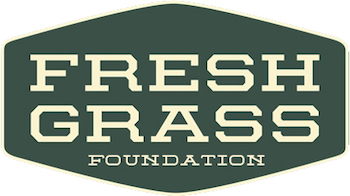Joni Mitchell: 50 Years After ‘Court and Spark’

Released 50 years ago today, Joni Mitchell’s sixth studio album Court and Spark, which reached number 2 on the Billboard charts and number 1 in Canada, showcases the songwriter’s lyrical eloquence and her ability to evoke the vulnerability, playfulness, yearning, and regret inherent in ambiguities of love. Musically, Mitchell discovers just the right vehicle for her exquisite vocals in the songs on Court and Spark, calling on Tom Scott and the LA Express to help her create the soaring, spacious jazz stylings of the album.
The title track opens sparely with Mitchell’s vocals flowing uncertainly at first over tentative piano chords, with Scott’s flute trills fluttering in the background. As the first verse ends, Mitchell’s vocals grow stronger and her striding piano blossoms fuller as the full band joins in with swelling instrumentation. The music itself mimics the ambivalence of a relationship—the “courting” and “sparking”—as lovers enter the early uncertainties of a partnership, lose themselves in its full passions, and then recognize that giving up oneself to the other often requires losing one’s freedom.
The atmospheric “Help Me”—whose free-flowing music ascends effortlessly as Mitchell’s vocals soar into the stratosphere—develops the interplay of love and freedom. The only of Mitchell’s songs to reach the Top 10, “Help Me” conveys the initial free fall into love, the accompanying questions about its longevity, and the yearning for freedom that one or the other, or both, lover feels. “Help Me” captures the exhilaration of falling in love while also acknowledging love can sometimes be a “lonely thing to do” when one lover lets the other go there by themselves.
The woodwind trills in the opening notes of “Free Man in Paris” resemble a jaunty stroll down the Champs Elysees, and indeed the song is a playful portrait of a man—acknowledged to be David Geffen, to whose label she was signed—whose yearning for freedom, hanging out in cabarets and cafes, clashes with the drudgery required in his workaday world.
The somber chamber piece “People’s Parties” offers a biting look at the hollowness and vanity of social situations in which individuals preen and display themselves for the sake of others, struggling for “higher achievement.” The singer acknowledges that the guests at such parties are often “giving to get something,” and she finds these “people’s parties” a sad and ironic commentary on human nature. At the same time, she wishes that she “had more sense of humor” about such gatherings.
In “The Same Situation,” Mitchell develops the themes of “People’s Parties,” even flowing along the same musical themes of the previous song, but now she focuses on a single relationship. The setting remains the vanity of the party but turns to the preening of one man who has set his sights on the song’s protagonist. She senses his shallowness—he’s always looking at himself in mirrors—yet can’t believe he would turn his gaze on her. In the end, the only beauty in which he is interested is his own.
Blaring horns open “Car on a Hill,” and Mitchell’s ethereal vocals capture the longing that accompanies the expectation of a lover to arrive. The genius of the song lies in its movement from the urgent sounds that mimic a lover’s waiting to the eerie echoing emptiness of the two instrumental bridges, which capture the sense of dread that the sound of the approaching car on the hill will never come. It’s a song that evokes the crushing, though not at all unexpected, disappointment when a relationship ends.
Like “Court and Spark,” “Down to You” unfolds spaciously over Mitchell’s somber piano stylings. One of the most beautiful songs on the album for its canny musical structure and for Mitchell’s soaring vocals, “Down to You” swells with the theme of individual responsibility in love. The verses suggest the continual flux of romance—“everything comes and goes/marked by lovers and styles of clothes”—while the bridge suggests that sometimes a lover might “crave warmth and beauty” and not be so “choosy.” Mitchell’s protagonist must eventually decide the shape the relationship will take.
The warm tones of “Just Like This Train” belie the coldness at the center of the song in which lovers pass like “railroad cars” and all the lovers grow old and a little ugly right before the eyes of their lovers. The sadness of “Just Like This Train” fades quickly in the joyous, boogie-across-the-floor “Raised on Robbery.” Mitchell’s scat singing launches this song which moves quickly from an Andrews Sisters-like jazz lounge standard to a rambunctious and soaring rocker fueled by Robbie Robertson’s scalding lead guitar licks.
The album’s penultimate track “Trouble Child” is a spacious, melodic ode to the benefits and harms of therapy. A persistent bass line moves the dark moodiness of the song forward while twinkling chimes and piano offer a counterpoint. “Trouble Child” segues into the Wardell Gray and Annie Ross-penned scat romp “Twisted.” Mitchell’s humorous take on her psychoanalysis includes patter from comedy duo Cheech & Chong. In her brilliant way, Mitchell matches vocally the notes of the music.
Court and Spark marks a clear departure from the folk and semi-pop stylings of Mitchell’s earlier albums, allowing her the freedom to follow her own musical and lyrical inclinations on later albums such as The Hissing of Summer Lawns (1975), Hejira (1976), and Mingus (1977). In addition, her vocal phrasing on songs such as “Twisted,” “Help Me,” and “Raised on Robbery” illustrate Mitchell’s effortless stylings as a jazz singer.
JoniMitchell.com
News
Music & Merch



